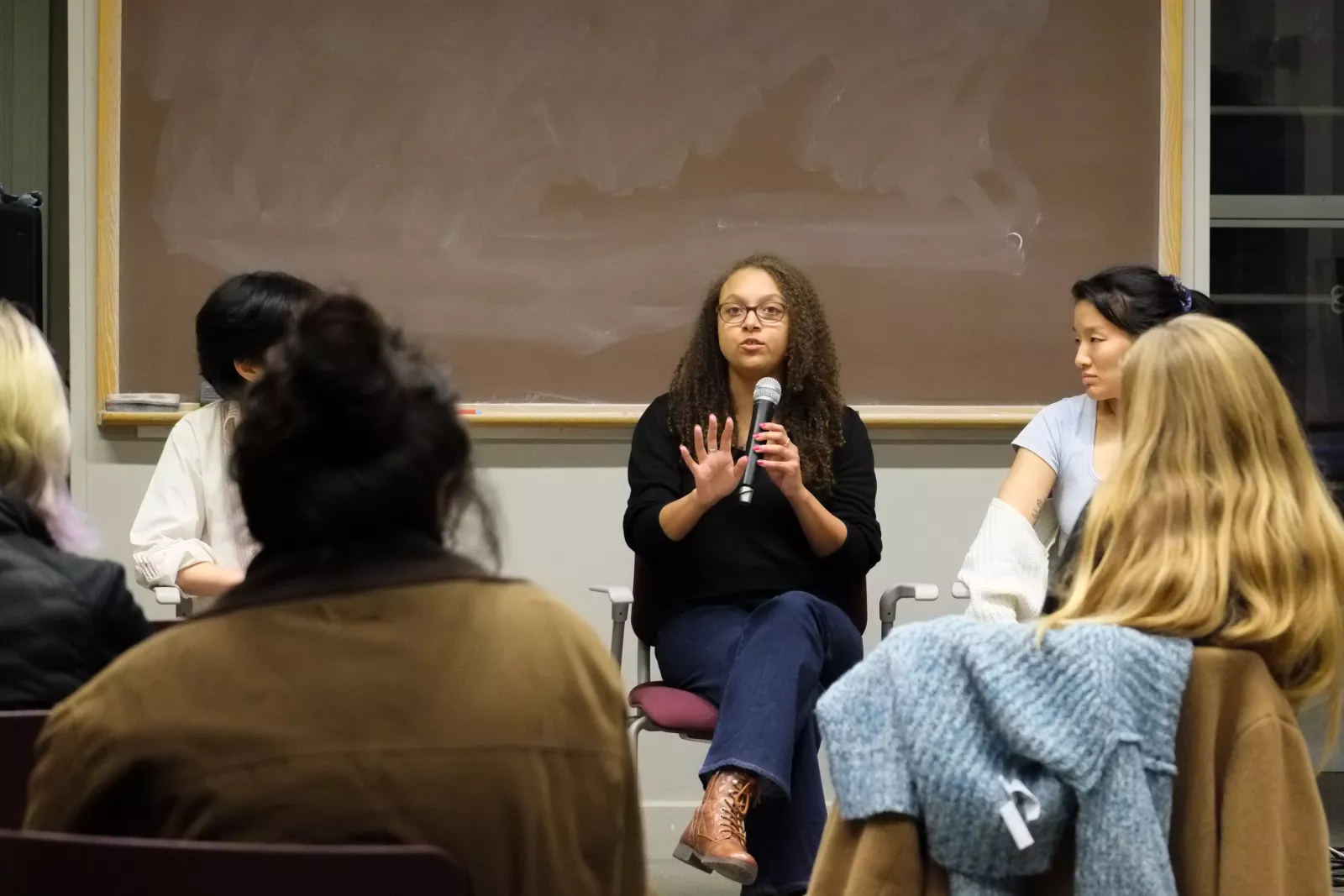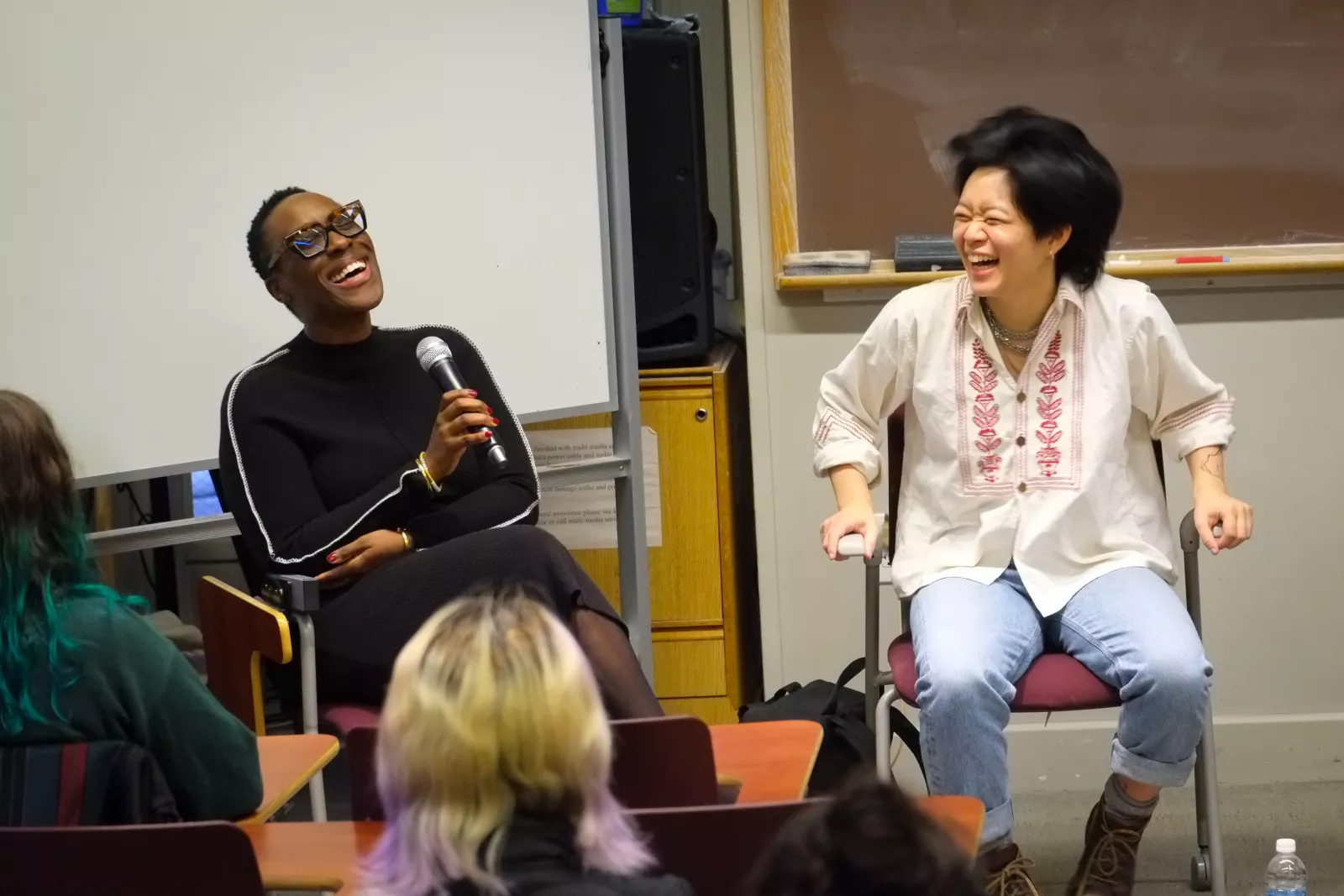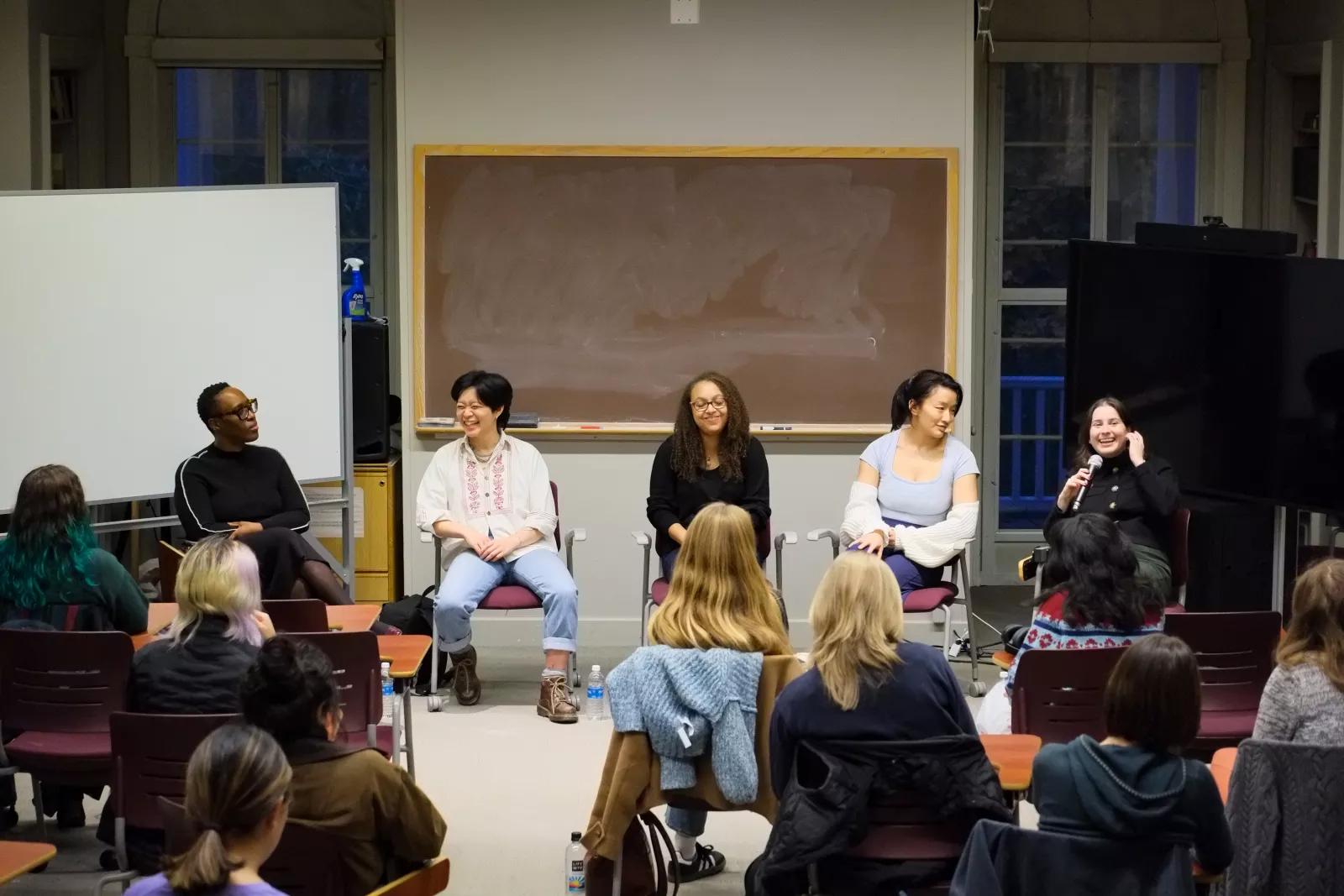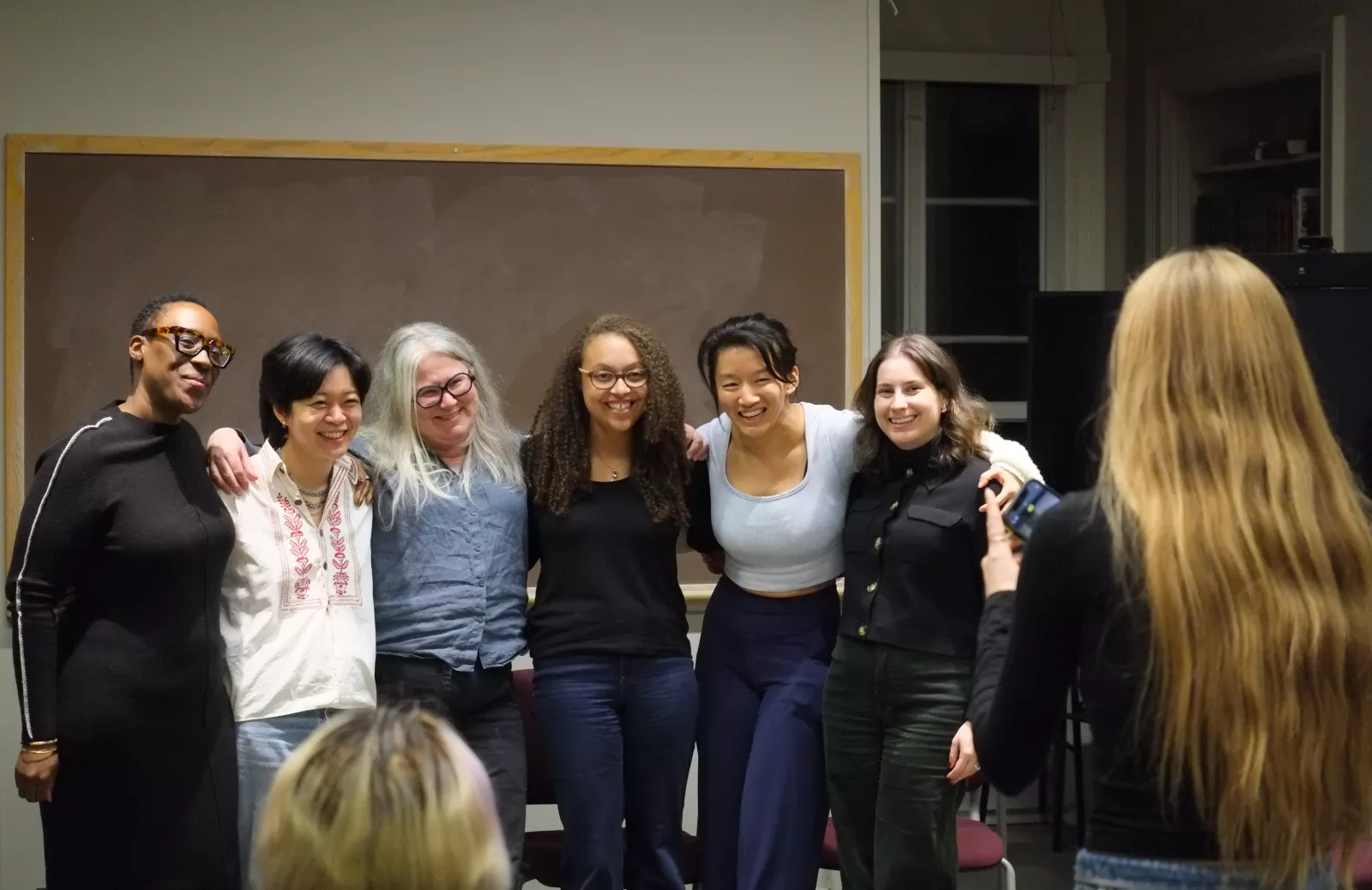
The idea of an English degree having little real-world value is a common trope. But not at Bryn Mawr. The Literatures in English alumnae/i who gathered back at English House on Nov. 14 proved the often-maligned major’s worth. Working in areas from law to finance to radio, they spoke with more than two dozen undergraduate students about how their Bryn Mawr educations — and their English degrees in particular — have led to professional success.
“I went in knowing how to communicate with people,” says Nikki Ho-Shing ’06, an HR and communications leader in finance. “I’m often the humanist in the room.”
The power of a Bryn Mawr education was that it showed employers that they were smart, they said, that they could write and communicate, that they could understand complex information, that they were well-read, well-rounded, and interesting people.
“When you’re passionate about something, people want to be around you,” Alison Robins ’17 says. “And they hire you.”
Andrea Tang ’12 became a novelist, and shared that while her job is easily romanticized, it doesn’t mean it’s easy. When she is doing less-fun tasks like rewrites, loving what she does is crucial. “You won’t like any job all the time,” Tang says. “But even if you don’t like everything you do for your job, love really comes through.”
For those who double-majored or minored in other departments, they talked about the complementary skills they gained. Film studies and psychology were a perfect set-up for her career in film publicity and talent relations, says Ally Navolio ’16, as they taught her how to understand and talk to people.
Sociology helped Hannah Chinn ’19 learn to ask questions and analyze information as a journalist.
“I think Bryn Mawr taught me to foster a deep curiosity,” says Chinn, an audio producer who works on NPR’s science podcast Short Wave. “I’m really interested in people and how they tell their stories.”
The panel gave the students advice in finding internships and externships that would help them explore different fields, make connections, and get a feel for what jobs they might want — or not want — to do.
“Don’t marry yourself to one path,” Tang says. “Be open to kind of exploring and having your mind changed.”
It’s OK to take a job for money, Ho-Shing assured the students. Just because you need to make money doesn’t make you less passionate or purposeful, she says, because Mawrters already have that passion and purpose. “Bryn Mawr is the kind of place that helps you understand yourself better, it draws it out, but it’s already there.”
Ho-Shing recalled a company leader commenting that she had “the uncanny ability to connect dots that none of us would ever see, she can read a room that nobody else can, and she understands broader context.” That, she says, goes back to the value of her English major.
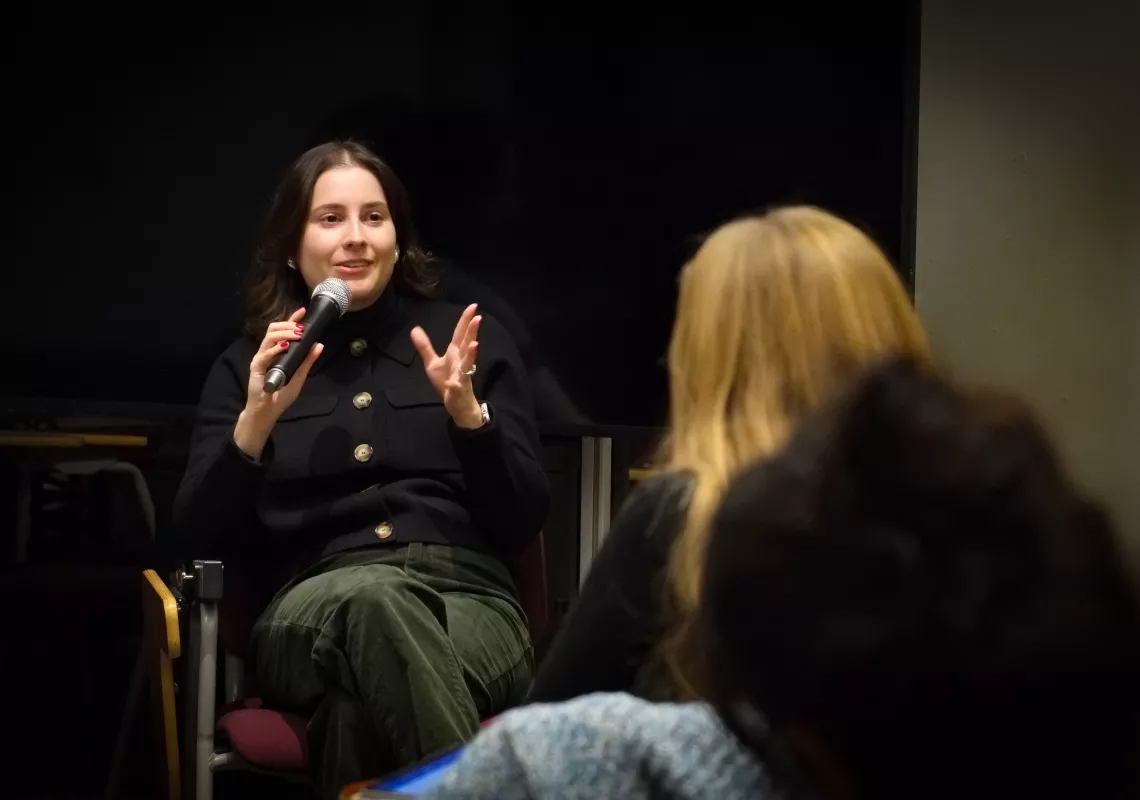
“I realized that Bryn Mawr gives you a superpower. You’re forced to be exceptional here. And it forces you to have confidence in yourself.”
“I use my major every day,” says Robins, an intellectual property attorney. “I read a lot of things I don’t understand initially but through the tools of being an English major, I know how to understand it. It makes you feel pretty unstoppable.”
The panelists talked about the Bryn Mawr community, about the idea of it being a bubble, and how grateful they were for that because it established shared values and gave them a support system for life.
When asked if Bryn Mawr prepared her for the real world, Robins says, “nothing can prepare you for every single real-life situation, but what it can do is give you the tools to research an answer to that problem.”
Moreover, “I realized that Bryn Mawr gives you a superpower,” Robins says. “You’re forced to be exceptional here. And it forces you to have confidence in yourself.”
Women and nonbinary people are conditioned by society to make themselves small, the panelists reflected, but Bryn Mawr breaks that pattern, giving them confidence to speak up and take charge.
“When I went into male-dominated rooms, I was not intimidated by them,” Tang says. “Because at Bryn Mawr I had been conditioned to make myself big instead, and make my voice heard.”
